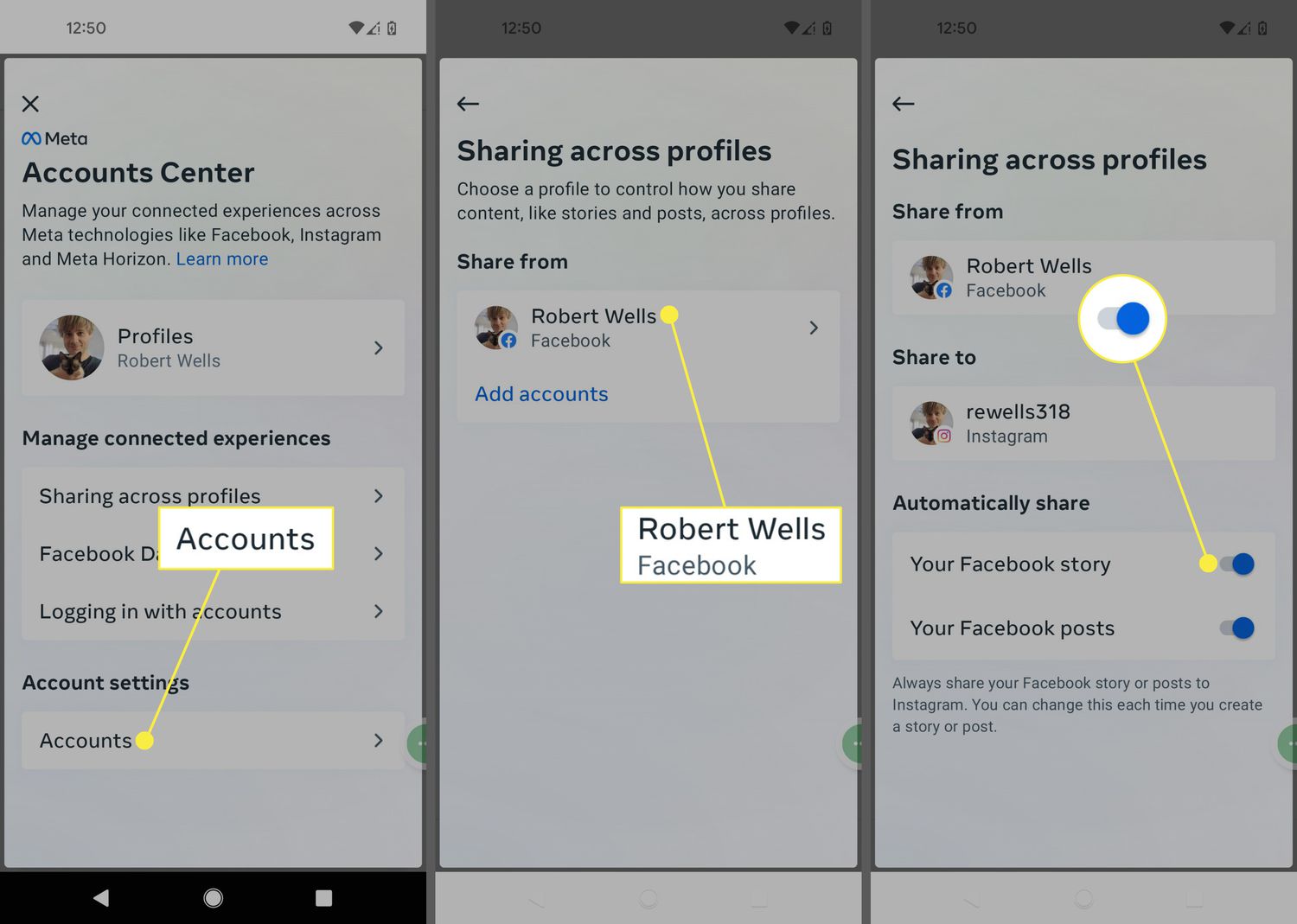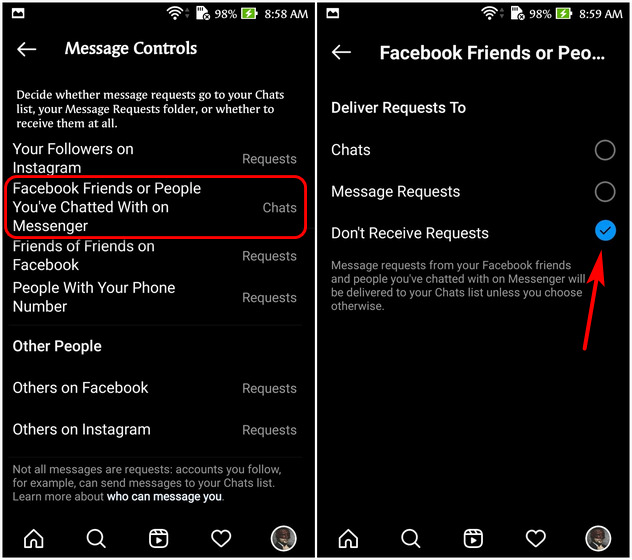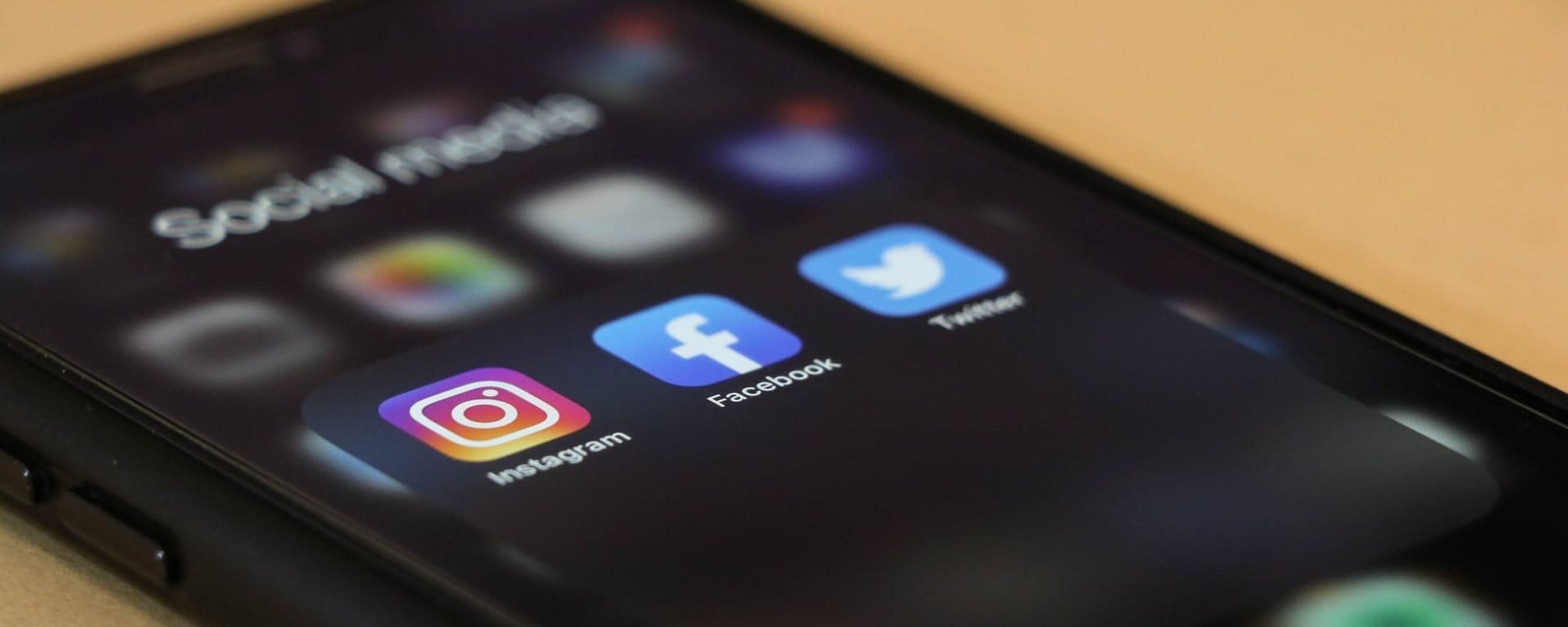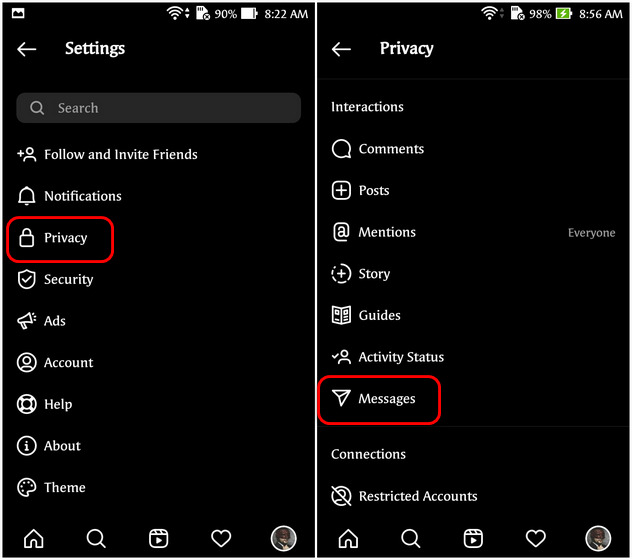Why Disconnecting Your Accounts is a Good Idea
Disconnecting Instagram and Facebook accounts can have numerous benefits for users. One of the primary advantages is improved online security. When accounts are linked, data sharing occurs between the two platforms, which can increase the risk of data breaches and unauthorized access. By disconnecting accounts, users can reduce the amount of personal data shared between platforms, thereby minimizing the risk of data compromise.
Another benefit of disconnecting accounts is increased control over personal information. When Instagram and Facebook accounts are linked, users may unintentionally share personal data, such as contact information or location, between the two platforms. By disconnecting accounts, users can regain control over their personal data and ensure that it is not shared without their consent.
Furthermore, disconnecting accounts can also help users to better manage their online presence. When accounts are linked, users may receive notifications and updates from both platforms, which can be overwhelming and distracting. By disconnecting accounts, users can simplify their online experience and focus on the platforms that are most important to them.
In addition, disconnecting accounts can also be beneficial for users who want to maintain separate personal and professional online identities. When accounts are linked, it can be difficult to keep personal and professional data separate, which can lead to confusion and embarrassment. By disconnecting accounts, users can create separate online identities for personal and professional use, which can help to maintain a clear boundary between the two.
Overall, disconnecting Instagram and Facebook accounts can have numerous benefits for users, including improved online security, increased control over personal information, and better management of online presence. If you’re wondering how to disconnect Instagram and Facebook, the process is relatively straightforward, and the benefits can be significant.
Understanding the Connection Between Instagram and Facebook
Instagram and Facebook are two of the most popular social media platforms in the world, with billions of users between them. But did you know that Facebook owns Instagram? In 2012, Facebook acquired Instagram for $1 billion, and since then, the two platforms have been closely linked.
As a result of this acquisition, Instagram and Facebook share a significant amount of data between them. When you link your Instagram account to your Facebook account, you’re allowing the two platforms to share information about your activity, interests, and personal data. This can be convenient for users who want to share content between the two platforms, but it also raises concerns about data security and privacy.
When you link your Instagram account to your Facebook account, you’re essentially creating a single login credential that can be used to access both platforms. This means that if someone gains access to your Facebook account, they may also be able to access your Instagram account, and vice versa. This can be a major security risk, especially if you use the same password for both accounts.
In addition to data sharing and account linking, the connection between Instagram and Facebook also affects how you use the two platforms. For example, if you post a photo on Instagram, you may be prompted to share it on Facebook as well. Similarly, if you comment on a post on Facebook, you may be able to see the same comment on Instagram.
Understanding the connection between Instagram and Facebook is important if you’re considering disconnecting your accounts. By knowing how the two platforms are linked, you can make informed decisions about how to manage your online presence and protect your personal data.
How to Disconnect Your Instagram Account from Facebook
Disconnecting your Instagram account from Facebook is a relatively straightforward process. Here’s a step-by-step guide to help you do it:
Step 1: Open the Instagram app and go to your profile page. Tap the three horizontal lines (≡) on the top right corner of the screen to access the menu.
Step 2: Tap “Settings” from the menu, then scroll down to the “Account” section.
Step 3: Tap “Linked Accounts” and select “Facebook” from the list of linked accounts.
Step 4: Tap “Unlink” to disconnect your Instagram account from Facebook. You may be prompted to confirm that you want to unlink the accounts.
Step 5: Once you’ve unlinked your accounts, you’ll no longer be able to share content between Instagram and Facebook. You’ll also need to use separate login credentials for each platform.
Alternatively, you can also disconnect your Instagram account from Facebook from the Facebook app. Here’s how:
Step 1: Open the Facebook app and go to your profile page. Tap the three horizontal lines (≡) on the top right corner of the screen to access the menu.
Step 2: Tap “Settings” from the menu, then scroll down to the “Account Settings” section.
Step 3: Tap “Apps and Websites” and select “Instagram” from the list of connected apps.
Step 4: Tap “Remove” to disconnect your Instagram account from Facebook.
By following these steps, you can easily disconnect your Instagram account from Facebook and take control of your social media experience. If you’re wondering how do I disconnect Instagram and Facebook, this guide should help you do it quickly and easily.
What Happens When You Disconnect Your Accounts
When you disconnect your Instagram and Facebook accounts, several things happen. First, the connection between the two accounts is severed, and you’ll no longer be able to share content between them. This means that if you post a photo on Instagram, it won’t automatically be shared on Facebook, and vice versa.
Additionally, disconnecting your accounts will affect how you log in to each platform. If you’ve been using Facebook to log in to Instagram, you’ll need to create a new login credential for Instagram. This can be a bit inconvenient, but it’s a small price to pay for the added security and control that comes with disconnecting your accounts.
Disconnecting your accounts will also affect data sharing between the two platforms. When your accounts are connected, Facebook and Instagram share data about your activity, interests, and personal information. By disconnecting your accounts, you’re limiting the amount of data that’s shared between the two platforms, which can help to protect your online security and privacy.
It’s worth noting that disconnecting your accounts won’t affect any content that’s already been shared between the two platforms. If you’ve shared photos or posts from Instagram on Facebook, they’ll still be visible on Facebook even after you disconnect your accounts. However, you won’t be able to share new content between the two platforms once they’re disconnected.
Overall, disconnecting your Instagram and Facebook accounts can have several benefits, including improved online security, reduced data sharing, and increased control over your personal information. If you’re wondering how do I disconnect Instagram and Facebook, the process is relatively straightforward, and the benefits can be significant.
Troubleshooting Common Issues with Disconnecting Accounts
When trying to disconnect your Instagram and Facebook accounts, you may encounter some common issues. Here are some solutions to help you troubleshoot:
Error Messages: If you receive an error message when trying to disconnect your accounts, try checking your account settings to ensure that you have the correct login credentials. You can also try clearing your browser cache and cookies to resolve the issue.
Account Linking Problems: If you’re having trouble unlinking your accounts, try checking the account linking settings on both Instagram and Facebook. Make sure that you have the correct accounts linked and that you’re using the correct login credentials.
Data Syncing Issues: If you’re experiencing data syncing issues after disconnecting your accounts, try checking your account settings to ensure that data syncing is enabled. You can also try restarting your device or clearing your browser cache and cookies to resolve the issue.
Account Lockout: If you’re locked out of your account after disconnecting your accounts, try checking your account settings to ensure that you have the correct login credentials. You can also try resetting your password or contacting the platform’s support team for assistance.
Other Issues: If you’re experiencing other issues when trying to disconnect your accounts, try checking the platform’s support pages for troubleshooting guides and FAQs. You can also try contacting the platform’s support team for assistance.
By following these troubleshooting steps, you should be able to resolve any common issues that may arise when trying to disconnect your Instagram and Facebook accounts. If you’re still having trouble, you can try searching online for more specific solutions or contacting the platform’s support team for assistance.
Alternative Ways to Manage Your Social Media Presence
Disconnecting your Instagram and Facebook accounts is just one step in managing your social media presence. Here are some alternative ways to manage your social media presence:
Using Third-Party Apps: There are many third-party apps available that can help you manage your social media presence. These apps can help you schedule posts, track engagement, and monitor your online reputation.
Creating Separate Accounts: Creating separate accounts for personal and professional use can help you maintain a clear boundary between your personal and professional life. This can also help you avoid accidentally posting personal content on your professional accounts.
Implementing Social Media Management Tools: Social media management tools can help you streamline your social media presence and save time. These tools can help you schedule posts, track engagement, and monitor your online reputation.
Using Social Media Scheduling Tools: Social media scheduling tools can help you schedule your posts in advance, which can help you save time and ensure that your content is consistent.
Monitoring Your Online Reputation: Monitoring your online reputation is crucial in maintaining a positive social media presence. You can use tools like Google Alerts to monitor your online reputation and respond to any negative comments or reviews.
By implementing these alternative ways to manage your social media presence, you can maintain a strong online presence and avoid the risks associated with connecting your Instagram and Facebook accounts. Remember, taking control of your social media experience is key to maintaining a positive online reputation.
Best Practices for Maintaining Online Security and Privacy
Maintaining online security and privacy is crucial in today’s digital age. Here are some best practices to help you protect your online presence:
Use Strong Passwords: Using strong passwords is essential in maintaining online security. Make sure to use a combination of uppercase and lowercase letters, numbers, and special characters to create a unique and secure password.
Enable Two-Factor Authentication: Two-factor authentication adds an extra layer of security to your online accounts. It requires you to enter a verification code sent to your phone or email in addition to your password.
Monitor Account Activity: Monitoring your account activity can help you detect any suspicious activity. Make sure to regularly check your account settings and activity logs to ensure that everything is in order.
Use a VPN: A VPN (Virtual Private Network) can help you protect your online activity from hackers and snoopers. It creates a secure and encrypted connection between your device and the internet.
Be Cautious with Public Wi-Fi: Public Wi-Fi networks are often unsecured, making it easy for hackers to intercept your online activity. Make sure to use a VPN or avoid using public Wi-Fi for sensitive activities.
Keep Your Software Up-to-Date: Keeping your software up-to-date can help you protect against security vulnerabilities. Make sure to regularly update your operating system, browser, and other software to ensure that you have the latest security patches.
By following these best practices, you can maintain online security and privacy and protect your online presence. Remember, taking control of your online security is key to maintaining a safe and secure online experience.
Conclusion: Taking Control of Your Social Media Experience
In conclusion, disconnecting your Instagram and Facebook accounts can have numerous benefits, including improved online security, reduced data sharing, and increased control over personal information. By following the steps outlined in this article, you can take control of your social media experience and maintain a safe and secure online presence.
Remember, taking control of your social media experience is key to maintaining a positive online reputation. By disconnecting your Instagram and Facebook accounts, you can reduce the risk of data breaches, improve your online security, and increase your control over personal information.
Additionally, by implementing the best practices outlined in this article, you can maintain online security and privacy, and protect your online presence from hackers and snoopers.
So, if you’re wondering how do I disconnect Instagram and Facebook, the answer is simple. By following the steps outlined in this article, you can take control of your social media experience and maintain a safe and secure online presence.
Take control of your social media experience today and start enjoying the benefits of a safe and secure online presence.







